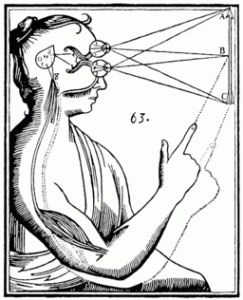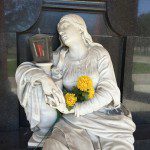
Today’s post is by guest blogger Bob Sessions:
You’re probably becoming a bit tired reading about Richard Rohr on this blog, but he has a remarkable knack for putting sophisticated ideas in clear and often homey ways. He not only has many suggestions for how we might grow spiritually, but he also reveals, in helpful ways, barriers to this growth.
One of Rohr’s most interesting discussions is of four “splits” or dualistic separations that we develop in our culture that keep us distracted from our spiritual paths. Versions of these splits probably are found in every culture, but he contends we have exaggerated versions that make it especially difficult to grow spiritually. I am finding that diminishing or overcoming these splits is necessary if I want to stay on the road to “non-dualistic” experience.
The first split is the natural and inevitable distinction between self and other that we accomplish by the age of two. In many societies this duality is muted by a belief that our interconnectedness with everything is fundamental, but in our culture we exacerbate the growth of large and separate egos with our emphasis on individualism. I grew up in rural South Dakota, where I was surrounded by a particularly strong form of this egoism that emphasized boundaries of all sorts rather than connections.
In my book, Becoming Real: Authenticity in an Age of Distractions, I spend many pages trying to describe a common Native American (and also Buddhist) practice of emphasizing our interconnectedness with other beings, including humans. Yes, we are distinct and unique. But every aspect of our being also is tied in with our genetic histories, cultures, natural systems, etc. Our connectedness is as much a part of our identity as our uniqueness. In pushing our individuality, our culture makes it very difficult to achieve the unity consciousness that is central to every spiritual tradition. That is why recognizing the ego or false self is so important.

Interestingly, Rohr’s second split is the distinction between life and death accompanied by the fear and denial of death. While there are many reasons we in America spend twice as much money on health care than any other society and get relatively poor results, surely one reason is that we wish to avoid death at most any cost. Happily we are beginning to embrace practices such as Hospice that help dying people and their loved ones learn to view death in more healthy ways, but for many of us this separation still poisons our spiritual lives.
My favorite exploration of this key split is the video Griefwalker, a documentary on social worker Stephen Jenkinson’s work with dying people. Through a series of poignant examples he shows how learning to see death as part of life can help heal relationships and broken spirits.
I believe part of our denial of death results from the third split, mind/body dualism, which has long been a predominant doctrine in western cultures and is the basis of the two-realm metaphysics that diminishes the material world in comparison with the transcendent one. In my next blog post you’ll hear the unlikely story of how a man’s relationship with a brood of wild turkeys has helped him overcome his mind/body dualism and fear of death (turkeys: not just for Thanksgiving anymore).
The fourth split is one we make between our acceptable and our unacceptable selves. Rohr believes that because we have developed a perfectionist idea of morality (sainthood) we spend much time judging ourselves and others to be fallen, unacceptable. Franciscans try to counter this counterproductive judgmentalism by emphasizing humility. Not the humility of believing we are evil and in need of redemption, but the humility of Jesus in his embracing of the marginalized and the humility of God in coming to live among us.
A particularly pernicious aspect of constantly judging ourselves and others that has been especially difficult for me is comparing and ranking aspects of my life. You know the drill: I am more ______ (good looking, well off, healthier, pious…) than _______; thus I (my ego) can feel good about myself. My schooling, and especially athletics, ingrained in me this habit of making comparative judgments, but it was my conservative religious education that gave this almost-automatic response a moralistic caste. Thus, for example, not only is so-and-so not as fast (pick your characteristic) as me, but he is morally less upright. And, of course, the flip side to this false sense of superiority is the envy that grows out of not winning the competition. Judgmentalism spawns both superiority and envy, the two major ways we bolster our egos. Pernicious indeed!

Dwelling on the negative, on what stands in our way, can be counter-productive, of course. It is all too easy to obsess on what doesn’t work or what we are doing wrong. But it can also help us see more clearly why we are stymied in our spiritual life and what we can do to get on the right path.
In my next post, I want to explore one way to counteract these splits—to become more animal.
And it involves wild turkeys!











